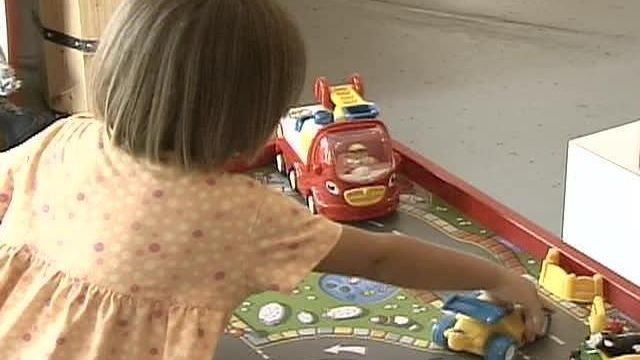5 On Your Side
Toy Recalls Due to Lead Are 'A Real Concern'
In the past few months, more than 22 million toys were recalled because they contained unusually high levels of lead, which can cause brain damage or even death if young children ingest it.
Posted — UpdatedCARY, N.C. — To young Maya Yenner, toys are just fun. But with the massive toy recalls and the approaching holidays, parents want to know if they’re safe.
“It’s sad. It is. The problem is so big it's hard to get your hands around it,” said Betsy Yenner, Maya’s mother.
In the past few months, companies have recalled more than 22 million toys because they contained unusually high levels of lead, which can cause brain damage or even death if young children ingest it.
Ed Norman, the head of North Carolina’s Lead and Child Care Program, said the danger is real.
“You know kids intentionally are playing with the toys. They're mouthing them, so it is a real concern. It's not something to be taken lightly,” Norman said.
Concerned parents are calling his office, he said.
“The most common question I'm getting is: ‘How can I know if these toys in my house are a problem?’” Norman said.
There's no easy answer. Most big manufacturers now promise they diligently test toys. Mattel/Fisher Price posts on its Web site a "commitment" that the paint undergoes a "mandatory 3-stage safety check." Many smaller, off-brand toymakers don't test, however.
“There is no complete assurance. If it is a painted product, if it's a product that's made in an Asian country that you don't know is from a reputable company where you know they have done testing, it would raise a red flag to me,” Norman said, as he walked the aisles of a local toy store.
Alan Cason, owner of AbraKIDabra Toys in Cary, said he gets calls from parents asking questions and looking for toys not made in China.
“You can't make a blanket accusation that everything that's made in China is bad,” Cason said.
Finding toys not made in China isn’t easy, because 80 percent of toys sold are made there. Cason understands the concern, he said, but believes reputable manufacturers are taking action.
“They're all parents. They're all concerned about safety issues, and they've assured us that they're on top of the situation,” Cason said. “They're doing the best they can to control every aspect of manufacturing and quality control.”
Even reputable companies have faced questions. A Consumer Reports investigation found plenty of toys still on store shelves contained dangerous amounts of lead.
Despite the company’s "safety commitment," the blood pressure cuff in a Fisher Price medical kit was one of them. Testers also found high lead levels in tea sets, vinyl backpacks, jewelry and dishware.
Nancy Nord, the acting chairman of the Consumer Product Safety Commission, testified about the agency's lack of resources and said only one person tests toys.
"He basically spends his time doing small-parts testing, drop testing. Bob’s our small parts guy,” Nord said.
Some parents bought inexpensive home lead tests kits, but, last week a federal government study concluded the tests simply weren’t reliable.
“You basically get what you pay for,” Norman said. “It's not worth much, the science in those things. Basically, they give you false positive and false negative readings, so you just can't rely on them.”
Professional lab tests would cost more than the toys are worth, Norman said. Plus, the tests usually destroy the toys. Norman and other experts said the better option is for people to have their children tested.
“The more important test that I try to reiterate, every time somebody calls, is to test the child,” Norman said. “If you're concerned about your child having been exposed, it will show up in their blood stream very quickly – within a few weeks."
The federal government recommends that all children have their blood tested for lead at the ages of 1 and 2 with a simple heel or finger stick.
Norman said the greatest lead health risk for children is still lead-based paint in older homes because the lead concentration is so high.
• Credits
Copyright 2024 by Capitol Broadcasting Company. All rights reserved. This material may not be published, broadcast, rewritten or redistributed.





